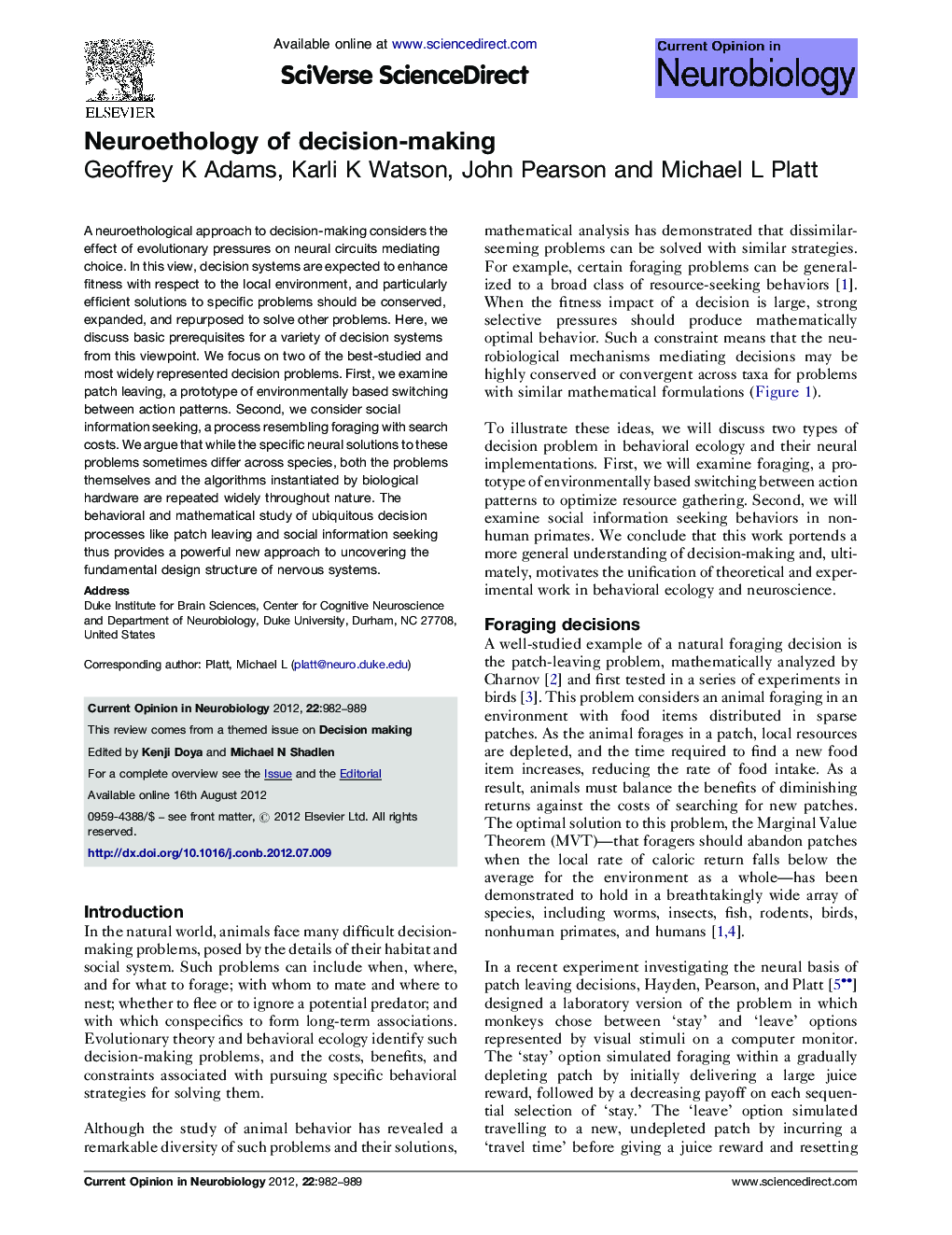| Article ID | Journal | Published Year | Pages | File Type |
|---|---|---|---|---|
| 6267259 | Current Opinion in Neurobiology | 2012 | 8 Pages |
A neuroethological approach to decision-making considers the effect of evolutionary pressures on neural circuits mediating choice. In this view, decision systems are expected to enhance fitness with respect to the local environment, and particularly efficient solutions to specific problems should be conserved, expanded, and repurposed to solve other problems. Here, we discuss basic prerequisites for a variety of decision systems from this viewpoint. We focus on two of the best-studied and most widely represented decision problems. First, we examine patch leaving, a prototype of environmentally based switching between action patterns. Second, we consider social information seeking, a process resembling foraging with search costs. We argue that while the specific neural solutions to these problems sometimes differ across species, both the problems themselves and the algorithms instantiated by biological hardware are repeated widely throughout nature. The behavioral and mathematical study of ubiquitous decision processes like patch leaving and social information seeking thus provides a powerful new approach to uncovering the fundamental design structure of nervous systems.
⺠A neuroethological approach to decision-making predicts neural systems evolve to enhance fitness with respect to the local environment. ⺠Efficient solutions to specific problems should therefore be conserved, expanded, and repurposed to solve other problems. ⺠The solution to the ubiquitous problem of when to leave a depleting resource is repeated throughout nature. ⺠Social information seeking may reflect a specialization of neural systems that evolved originally to acquire information to aid foraging. ⺠The behavioral and mathematical study of ubiquitous decision processes like patch leaving and social information seeking provides a powerful new approach to uncovering the fundamental design structure of nervous systems.
